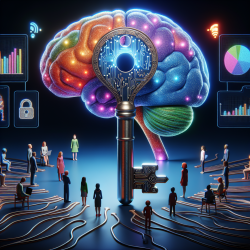As a speech-language pathologist committed to data-driven decisions, I am thrilled to discuss the findings of the recent study, "Remote Neuropsychological Intervention for Developmental Dyslexia with the Tachidino Platform: No Reduction in Effectiveness for Older Nor for More Severely Impaired Children." This research offers valuable insights into how remote interventions can be equally effective for children of varying ages and severity levels in developmental dyslexia.
Key Findings
The study involved 91 children with developmental dyslexia and/or dysorthographia who underwent a one-month treatment using the Tachidino platform. The outcomes were assessed both immediately after the treatment and at a six-month follow-up. The key findings are as follows:
- No significant difference in improvement for reading accuracy and speed across different age groups.
- Younger children (below 9 years) showed more improvement in writing accuracy compared to older children.
- Children with more severe initial impairments improved more significantly than those with less severe impairments.
- These improvements were sustained at a six-month follow-up, indicating long-term benefits.
Practical Implications for Practitioners
The study provides compelling evidence that remote neuropsychological interventions like Tachidino can be highly effective across various age groups and severity levels. Here are some practical steps for implementing these findings in your practice:
- Adopt Remote Platforms: Incorporate remote intervention platforms like Tachidino to maximize flexibility and accessibility for your clients.
- Focus on Individual Needs: Customize interventions based on the child's age and severity level to optimize outcomes.
- Long-Term Monitoring: Regular follow-ups are crucial to ensure the sustainability of the improvements.
Encouraging Further Research
While this study offers significant insights, it also opens the door for further research. Areas that require more exploration include:
- The long-term effectiveness of remote interventions beyond six months.
- Comparative studies with other intervention programs to identify the most effective approaches.
- The specific contributions of different components within the Tachidino platform, such as visual-attentional training and auditory stimulation.
By integrating these findings into your practice and encouraging further research, we can collectively enhance the educational and developmental outcomes for children with developmental dyslexia.
To read the original research paper, please follow this link: Remote Neuropsychological Intervention for Developmental Dyslexia with the Tachidino Platform: No Reduction in Effectiveness for Older Nor for More Severely Impaired Children.










